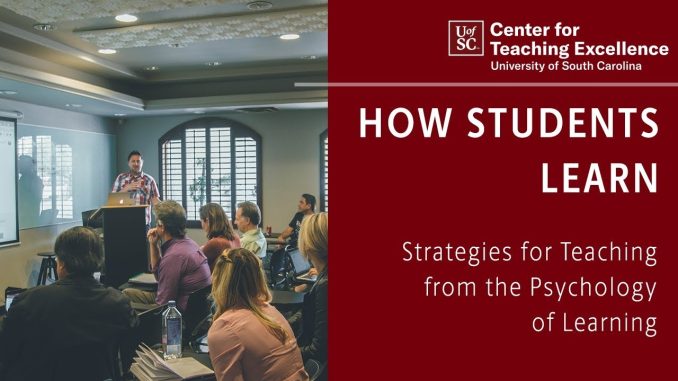
The psychology of learning is a fascinating and essential field that offers valuable insights for students striving to maximize their educational experience. Understanding how learning works—not just what to study, but how the brain absorbs, processes, and retains information—can transform the way students approach their studies. This knowledge equips learners with strategies that not only improve academic performance but also foster long-term intellectual growth. In a world where education often feels like a race against deadlines and exams, appreciating the psychological mechanisms behind learning offers a refreshing and effective perspective.
At its heart, learning is more than the passive absorption of facts; it is an active, dynamic process shaped by cognition, motivation, and emotion. One critical aspect students should understand is that the brain thrives on connections. When new information relates to what is already known, it becomes easier to grasp and remember. This principle, often called meaningful learning, explains why rote memorization frequently falls short. For example, a student studying economics might find it challenging to recall abstract theories unless those concepts are linked to real-world examples, like market trends or personal finance experiences. By creating these mental bridges, the brain builds a network of knowledge that strengthens recall and application.
Moreover, the psychology of learning emphasizes the importance of spaced repetition and retrieval practice. Rather than cramming information in a single session, spreading study sessions over time enhances retention. This effect is rooted in how memory consolidation occurs in the brain, gradually transferring knowledge from short-term to long-term storage. Students who revisit material at increasing intervals and actively test themselves—such as by answering questions or teaching concepts to others—engage deeper cognitive processes. This approach not only improves memory but also builds confidence, which is a powerful motivator for continued learning.
Emotions also play a significant role in how effectively students learn. Positive emotions such as curiosity, interest, and enthusiasm create an optimal environment for absorbing new information. Conversely, stress and anxiety can impair concentration and memory formation. For instance, a student overwhelmed by exam pressure may struggle to recall even well-studied material. Recognizing this, many educators now advocate for learning environments that promote psychological safety and encourage exploration rather than fear of failure. Students themselves can benefit by incorporating stress management techniques—like mindfulness or structured breaks—into their study routines, helping maintain mental clarity and resilience.
Another psychological insight that students should appreciate is the value of metacognition—the ability to think about one’s own thinking. This self-awareness allows learners to monitor their understanding, identify knowledge gaps, and adjust strategies accordingly. For example, a student who realizes that reading a textbook passively does not lead to comprehension might switch to summarizing key points or discussing topics with peers. This reflective practice transforms learning from a passive intake into an active process, fostering deeper engagement and adaptability.
Learning styles have long been discussed in educational circles, but contemporary psychology advises caution in relying too heavily on rigid categorizations like “visual” or “auditory” learners. Instead, flexibility and varied approaches are more beneficial. Students who combine reading, writing, speaking, and practical application are more likely to internalize material effectively. For example, a history student might read about an event, watch a documentary, write an essay, and participate in group discussions. This multimodal approach not only caters to different cognitive pathways but also enriches understanding by viewing the material from multiple perspectives.
The social context of learning also deserves attention. Humans are inherently social creatures, and learning often happens most effectively through interaction. Collaborative projects, study groups, and peer teaching can enhance comprehension by exposing students to diverse viewpoints and encouraging explanation—an act that solidifies one’s grasp of the material. Additionally, feedback from instructors or peers provides essential guidance, helping students correct misunderstandings and refine skills. Embracing this social dimension helps students feel connected and supported, which contributes to motivation and persistence.
Importantly, the psychology of learning acknowledges that setbacks and mistakes are not only inevitable but also valuable. The concept of a growth mindset, popularized by psychologist Carol Dweck, teaches that abilities can develop through effort and learning from errors. Students who adopt this mindset see challenges as opportunities rather than threats. For example, a math student struggling with complex problems might view difficulty as a signal to try different methods rather than a sign of incapacity. This attitude encourages perseverance, resilience, and ultimately, better outcomes.
Incorporating technology into learning also ties closely to psychological principles. Digital tools that promote active engagement, such as interactive simulations or adaptive quizzes, can boost motivation and tailor learning to individual needs. However, technology’s benefits depend on mindful use; distractions and multitasking often hinder cognitive processing. Students who learn to use digital resources intentionally—balancing focus and breaks—can leverage these tools to enhance understanding and efficiency.
In essence, the psychology of learning provides students with a roadmap for navigating the complexities of education. It highlights that learning is not a one-size-fits-all journey but a nuanced interplay of cognition, emotion, behavior, and environment. By understanding these dimensions, students can develop personalized strategies that respect their unique needs while drawing on proven psychological principles.
Ultimately, this awareness fosters not just academic success but lifelong learning. The ability to learn effectively—adapting to new challenges, acquiring new skills, and thinking critically—is perhaps the most valuable asset in today’s rapidly evolving world. When students appreciate how their minds work and harness that knowledge, they transform learning from a chore into an empowering and enriching experience. This mindset, rooted in the psychology of learning, sets the stage for growth not only in school but across all areas of life.

Leave a Reply